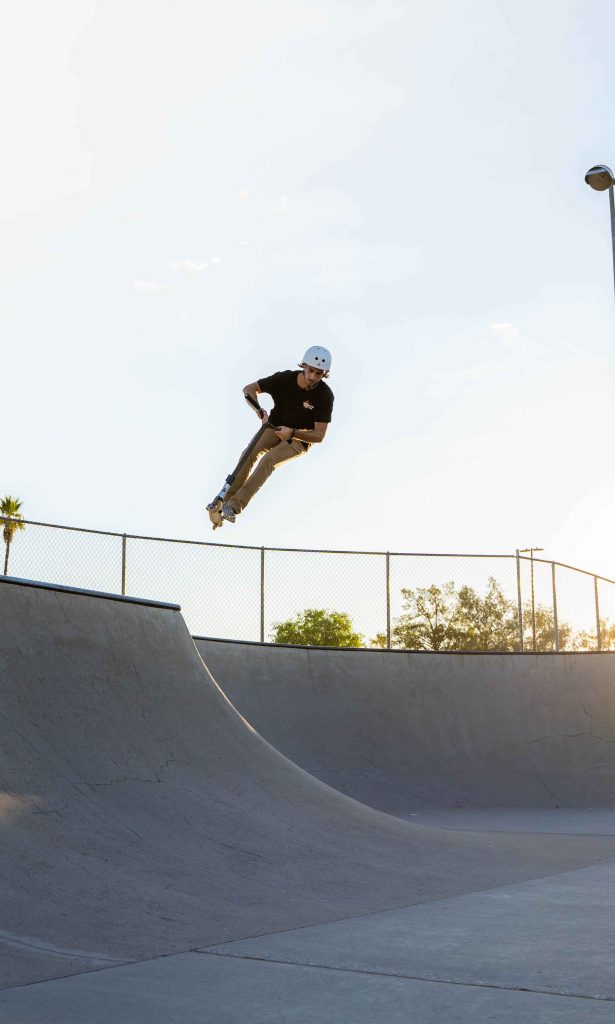
Recent Legislation Affecting Scooters, Skateboards and Parking Penalties
Sep 30, 2020AB 1286: Shared Mobility Devices
On September 18, 2020, the Governor signed Assembly Bill 1286, which impacts how shared mobility service providers (e.g. scooter companies like Lime or Bird) operate within a city or county, and requires cities and counties (by ordinance, agreement, or permit terms) to adopt operation, parking, and maintenance rules when such providers are operating within the city’s jurisdiction.
Starting January 1, 2021, before distributing any shared mobility device for use, a shared mobility service provider will be required to enter into an agreement with, or obtain a permit from, the city or county with jurisdiction over the area of use. The agreement or permit must, at a minimum, require that the shared mobility service provider maintain commercial general liability insurance coverage with limits not less than one million dollars ($1,000,000) for each occurrence and not less than five million dollars ($5,000,000) aggregate for all occurrences during the policy period. Under the new law, a shared mobility device is defined as an electrically motorized board, motorized scooter, electric bicycle, bicycle, or other similar personal transportation device.
The new law also requires a city or county that authorizes a shared mobility device provider to operate within its jurisdiction on or after January 1, 2021, to adopt (by ordinance, agreement, or permit terms) operation, parking, and maintenance rules regarding the use of the devices in its jurisdiction before the provider may offer any devices for rent or use. Cities or counties that authorized a provider to operate within its jurisdiction before January 1, 2021, and continue to provide that authorization, must adopt operation, parking, and maintenance rules by January 1, 2022. AB 1286 does not contain specific direction as to the terms or provisions that must be included in the operation, parking, and maintenance rules required by the law.
AB 3277: Parking penalties paid through a payment plan option
Currently, agencies can process unpaid parking penalties and related service fees through 3 specified options, including filing an itemization of unpaid penalties with the Department of Motor Vehicles for the Department to collect the penalties along with the registration of the vehicle. The agencies cannot file the itemization with the Department of Motor Vehicles unless, among other conditions, the agency provides a payment plan option for indigent persons, as defined, that, at a minimum, allow payment of unpaid parking penalties and related service fees in monthly installments. Currently, Vehicle Code section 40220 limits the total amount that can be paid in installments to $300 or less and the payments must be paid within 18 months, as specified.
AB 3277 increases the total amount that can be paid in installments from $300 to $500 and extends the time in which those penalties and fees can be paid from 18 months to 24 months. Additionally, this bill also extends the period within which an indigent person can file a request to participate in a payment plan from 60 days to 120 calendar days.
AB 3277 also requires certain information relating to the payment plan be included in the notice of parking violation and in a prominent location on the parking citation page of its public internet website.
SB 1003: Skateboard park safety and liability
SB 1003 is effective immediately and expands the law that provides qualified immunity in connection with skateboarding in skateboard parks to also permanently include the riding of “other wheeled recreational devices.” SB 1003 defines “other wheeled recreational device” as “non-motorized bicycles, scooters, inline skates, roller skates, or wheelchairs being used for recreational purposes.”
In 2016, Assembly Bill 1486 amended state law to include not only skateboards but also “other wheeled recreational devices.” The inclusion of other wheeled recreational devices was considered a trial put in place in order to “evaluate their impact on usage of skateboard parks and rates of recreational injuries.” The four-year trial period ended on January 1, 2020. SB 1003 once again extends the qualified immunity afforded to public agencies in connection with skateboarding to other wheeled devices, by making the riding of such devices a hazardous recreational activity


